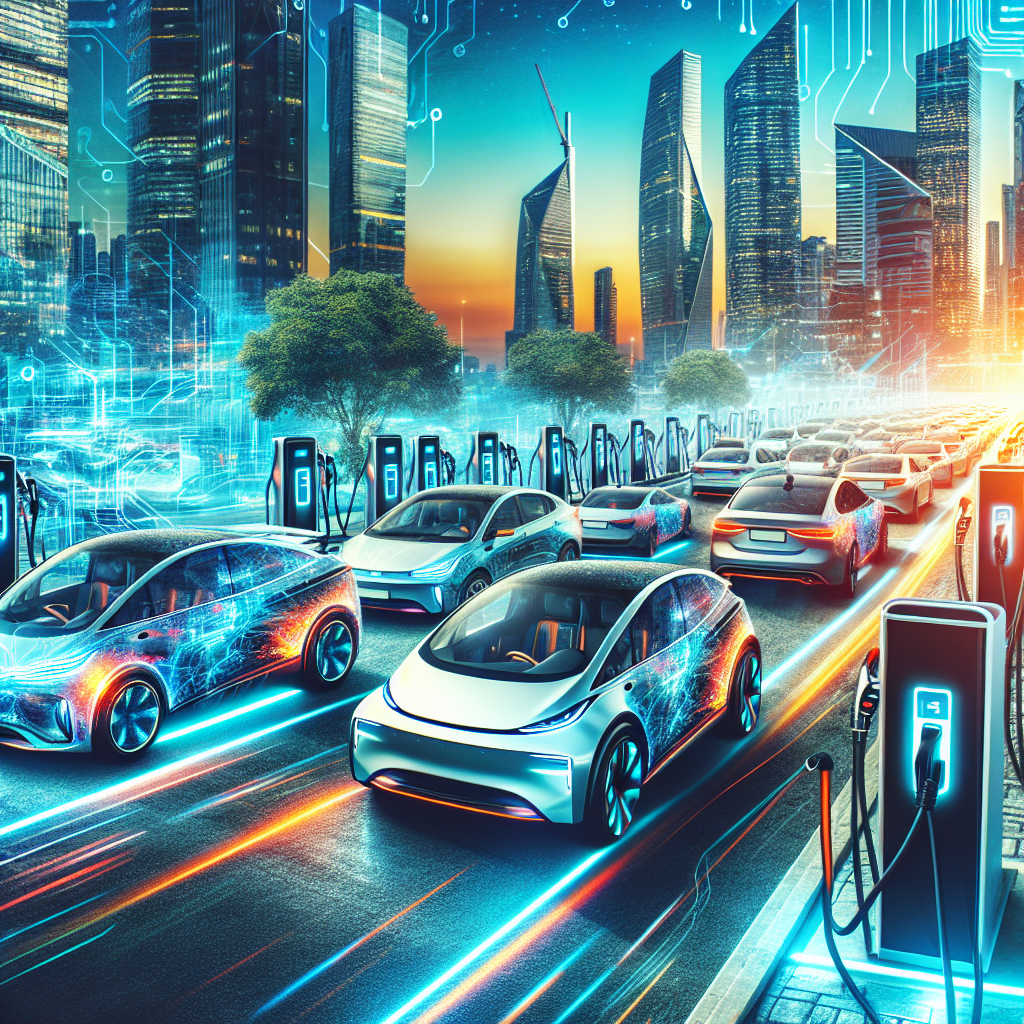The world is at a crucial juncture in its battle against climate change, and one of the most effective tools in this struggle is the electric vehicle (EV). As we seek to reduce carbon emissions and transition to greener methods of transportation, electric vehicles have emerged as a game-changer. This article will explore the impact of EVs on reducing carbon emissions, the technology behind them, their benefits, and challenges, and how they represent a sustainable future for transportation.
Understanding Electric Vehicles
Electric vehicles are powered by electric motors and rechargeable batteries, as opposed to conventional vehicles that rely on internal combustion engines fueled by petrol or diesel. They come in various forms, including fully electric vehicles (BEVs), plug-in hybrid electric vehicles (PHEVs), and hybrid electric vehicles (HEVs). Each type has its own method of operation and efficiency, but they all share a common goal: reducing reliance on fossil fuels.
The Environmental Impact of Traditional Vehicles
Conventional vehicles contribute significantly to carbon emissions. According to the Environmental Protection Agency (EPA), transportation accounted for about 29% of total greenhouse gas emissions in the U.S. in 2020. Traditional gas-powered vehicles release carbon dioxide (CO₂), nitrogen oxides (NOx), and particulate matter into the atmosphere, contributing to global warming and air pollution.
How Electric Vehicles Reduce Carbon Emissions
Zero Tailpipe Emissions
One of the most significant benefits of electric vehicles is that they produce zero tailpipe emissions. This means that when driving an EV, there are no harmful gases being released into the atmosphere. This reduction in emissions can have a profound effect in urban areas, where air quality is often a concern.
Renewable Energy Integration
EVs become even more eco-friendly when powered by renewable energy sources. Charging electric vehicles using wind, solar, or hydro power further decreases their carbon footprint. In regions where the grid primarily uses renewable energy, the overall benefit of driving an electric vehicle is amplified.
Promoting Efficiency
Electric vehicles are generally more efficient than their gasoline counterparts. An electric motor converts over 60% of electrical energy from the grid to power at the wheels, whereas traditional gasoline vehicles only convert about 20% of the energy stored in gasoline. This efficiency contributes to lower energy consumption and emissions overall.
Benefits of Electric Vehicles Beyond Emissions
Cost Savings
Many people worry that electric vehicles are too expensive, but the total cost of ownership often reveals a different story. EVs have lower operating and maintenance costs due to fewer moving parts than traditional cars, and they offer savings on fuel, especially when charging from home electricity rates compared to gas prices.
Incentives and Support
Governments around the world are keen to incentivize the switch to electric vehicles. Tax breaks, rebates, and grants for purchasing EVs are becoming increasingly common. Additionally, many countries plan to phase out gas-powered vehicles in favor of electric models, paving the way for future EV growth.
Technological Advancements
The technology surrounding electric vehicles is advancing at a rapid pace. The range of EVs has increased significantly due to better battery technologies, and features such as fast charging have drastically reduced the time it takes to “refuel.” Many models now offer ranges that are comparable to traditional vehicles, making them a viable option for most drivers.
Challenges Facing Electric Vehicles
Charging Infrastructure
While charging stations are becoming more common, the lack of infrastructure can still be a barrier to widespread EV adoption for some consumers. This issue is especially pronounced in rural areas, where access to charging stations may be limited.
Battery Disposal and Recycling
Electric vehicle batteries have a lifespan of around 8 to 15 years, after which they need to be disposed of or recycled. For EVs to be truly sustainable, effective recycling methods must be developed to minimize environmental impact.
Initial Costs
Although prices for electric vehicles are gradually decreasing, the initial purchase price can still be a deterrent for buyers. However, the long-term savings often justify the upfront cost, and more affordable models are continuously entering the market.
The Future of Electric Vehicles
The future of electric vehicles looks promising. As technology continues to improve and society becomes more aware of the benefits of reduced carbon emissions, the adoption of EVs is expected to grow exponentially. Several automakers are committing to electrifying their fleets, and more countries are setting ambitious targets for transitioning to electric mobility.
Conclusion
Electric vehicles are more than just a trend; they represent a transformative shift in how we approach transportation and environmental responsibility. By significantly reducing carbon emissions and supporting a sustainable future, EVs are paving the way for a cleaner, greener planet. As we continue to overcome challenges and adopt new technologies, electric vehicles will undoubtedly play a crucial role in fighting climate change and improving air quality for generations to come.
Frequently Asked Questions
1. Are electric vehicles really better for the environment?
Yes, electric vehicles produce zero tailpipe emissions and can be powered by renewable energy sources, helping to reduce overall carbon emissions significantly.
2. How long does it take to charge an electric vehicle?
The charging time depends on the type of charger used. Fast chargers can charge a vehicle to 80% in about 30-40 minutes, while home chargers typically take several hours for a full charge.
3. Are electric vehicles more expensive than traditional cars?
While the initial cost of electric vehicles may be higher, they often lead to lower total ownership costs over time due to savings on fuel and maintenance.
4. How far can I drive an electric vehicle on a single charge?
The range of electric vehicles varies by model. Many newer models offer ranges between 200-300 miles on a single charge, which is sufficient for most daily needs.
5. What happens to electric vehicle batteries at the end of their life?
Electric vehicle batteries can be recycled, and various companies are developing methods to repurpose or recycle them effectively to minimize environmental impact.





